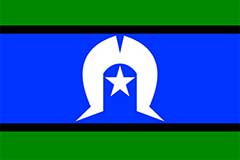
Overview
The National Indigenous Research and Knowledges Network (NIRAKN) is a multidisciplinary 'hub and spokes' model network of Indigenous researchers at various stages of their career from over twenty collaborating universities, including AIATSIS. NIRAKN draws chief investigators from each of its formal partners and is administered by the Queensland University of Technology. Recently NIRAKN created a capacity to add associate members.
Impact statement
The aim of the network is to establish a coterie of skilled, qualified Indigenous researchers — creating pathways from undergraduate to postgraduate studies to establish a regenerative pipeline of new researchers — across institutions and fields of critical research importance. The network will provide a platform for new Indigenous multi-disciplinary research and the establishment of a critical mass of multi-disciplinary, qualified Indigenous researchers to meet the compelling research needs of our communities.
AIATSIS is integrally involved in the NIRAKN initiative. Former Director of Research, Indigenous Social and Cultural Wellbeing, Dr Jakelin Troy, was the chief investigator and one of two node leaders for the virtual Research Node �?Yuraki – History, Politics & Culture’. As node leader, she was also a member of the NIRAKN Management Committee. AIATSIS Health Research Fellow Dr Michael (Mick) Adams is a Chief Investigator for the Health node.
The key role of the nodes is to develop and conduct research, deliver research capacity building workshops and provide professional advice and support to NIRAKN members. Node membership is fluid. NIRAKN members can choose to be a member of all nodes and attend their virtual meetings.
Partnerships
NIRAKN comprises 11 collaborating organisations (10 universities and AIATSIS) and 5 partner organisations:
Collaborating organisations:
- Queensland University of Technology(lead)
- AIATSIS
- University of Newcastle
- University of Tasmania
- University of Melbourne
- Central Queensland University
- Australian National University
- University of Technology, Sydney
- University of Western Australia
- Charles Darwin University
- University of Wollongong
Partner organisations:
- United Nations University
- Ninti One Ltd
- South coast Womens health and welfare Aboriginal corporation - Waminda
- National Congress of Australia's first peoples
- Aboriginal and Torres Strait Healing Foundation
In association with the launch of the NIRAKN, AIATSIS hosted the first NIRAKN research capacity building forum in the Mabo room from 15 to 19 July 2013. The week long intensive program was focused on building capacity among early career Indigenous researchers and addressed issues such as ethical research, winning grants, quantitative research methods, career development, writing and publishing.
Dr Troy, together with Professor Kathy Clapham and Dr Mark McMillan convened the Research Ethics Workshop with a presentation from AIATSIS Research Ethics Committee Chairperson, Chrissy Grant. This session provided an update on the most recent guidelines for ethical research in Indigenous studies (AIATSIS 2012) as well as an overview of the ethical guidelines and supporting documents for Indigenous health research. The session unpacked some of the common research ethics problems in health, law and the humanities from the perspectives of researchers, Indigenous communities and ethics committees.
Dr Adams, a Chief Investigator on the NIRAKN grant, joined the AIATSIS Centre for Health and Wellbeing in August 2013. Dr Adams will be engaging with the Health node of NIRAKN, led by Drs Bronwyn Fredericks, Kathleen Clapham and Pat Dudgeon.




